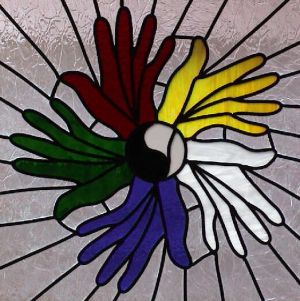|
Traditional Chinese Medicine (TCM) "Treating illness after it has begun is like digging a well after becoming thirsty, or forging weapons after a battle has been engaged." - Nei Jing The basis of Oriental Medical thought is the belief in Chi (or, Qi, in Japanese), the human life energy that makes us who we are; the concept that the body is actually made of energy or light which, when condensed, creates the matter that is the body. The circulation of Qi is not only one of many bodily systems, but governs them all and influences everything we do. TCM theory is known to be somewhere between 5000 and 6000 years old. |

|
TCM is a comprehensive and complicated system of healthcare. It was developed by medical practitioners and passed down through generations until the writing of The Yellow Emperor's Classic of Internal Medicine, or 'Nei Jing'. This is considered the oldest known medical text in the world. It is written in the language of its time, which is very metaphorical and conceptual. The Nei Jing presents a proven, very effective system of medical theory and application. TCM since has evolved along with humanity, leading to many other recognized texts and effective treatments. In ancient China, the subjects of Nature, Physics, Philosophy, Religion, and Medicine were one in the same, interchangeable chapters of a singular concept. Religion was Philosophy, Philosophy was Medicine, Medicine was Physics, and so on; all were harmoniously functioning together as one. The diet of the ancients was considered more medicinal than simply providing fuel. The structure of their society integrated a respect for the Earth and all of its life, because they depended upon the laws of nature for survival; appreciation which many cultures do not have today. From the perspective of TCM, it is crucial to our survival as individuals and a species that we restore this delicate balance. |